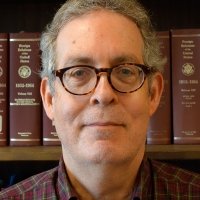The Blind Eye: U.S. Non-Proliferation Policy towards Pakistan from Ford to Clinton
Known as the torch-bearer of arms control and non-proliferation, the United States is largely believed to be the global leader of the non-proliferation regime. To that effect, non-proliferation has remained high on its foreign policy agenda. Notwithstanding the above, the non-proliferation regime is under threat today, something that merits a question: Has the US been seriously committed to ensuring non-proliferation or has it made compromises pursuant to other strategic objectives along the way while maintaining a façade?
The Blind Eye is a scholarly endeavor to answer the above question. Using declassified documents from the US Archives, this book discusses the US non-proliferation policy towards Pakistan from Ford to Clinton. Bringing new knowledge to the fore, this book argues that the US, contrary to its claims, made trade-offs between non-proliferation and other foreign policy goals viz Pakistan. Consequently, the non-proliferation policy that the US developed during the five administrations from 1974-2001 demonstrates Washington’s lack of commitment to its non-proliferation enforcement agenda towards Islamabad.
This event is co-sponsored by The Stimson Center.
INNOVATIVE IDEAS
CHANGING THE WORLD
Dr. Rabia Akhtar is an Assistant Professor and Head of the Department in the School of Integrated Social Sciences at University of Lahore, Pakistan. She is also the founding Director for the Centre for Security, Strategy and Policy Research at University of Lahore.
Hannah E. Haegeland is a Research Analyst in Stimson’s South Asia Program working on nuclear security, crisis escalation and management, and regional politics. Haegeland has published analysis in Foreign Affairs, Foreign Policy, the National Interest and numerous other publications.
Dr. William Burr is a senior analyst at the National Security Archive, and directs the Archive's nuclear history documentation project. He received his Ph.D. in history from Northern Illinois University, was formerly a visiting assistant professor at Washington College, and has taught at the Catholic University of America, George Mason and American universities.
Speakers



Senior Analyst, National Security Archive
Hosted By

Nuclear Proliferation International History Project
The Nuclear Proliferation International History Project is a global network of individuals and institutions engaged in the study of international nuclear history through archival documents, oral history interviews, and other empirical sources. Read more


Cold War International History Project
The Cold War International History Project supports the full and prompt release of historical materials by governments on all sides of the Cold War. Read more


History and Public Policy Program
A leader in making key foreign policy records accessible and fostering informed scholarship, analysis, and discussion on international affairs, past and present. Read more


Indo-Pacific Program
The Indo-Pacific Program promotes policy debate and intellectual discussions on US interests in the Asia-Pacific as well as political, economic, security, and social issues relating to the world’s most populous and economically dynamic region. Read more
